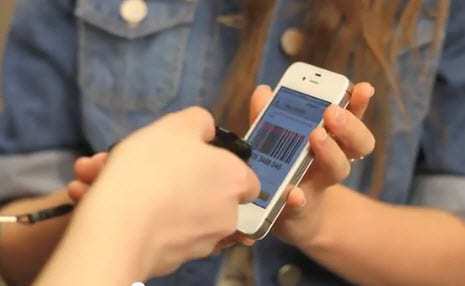Five banks to pick up Zapp mobile commerce platform later this year
Five of the United Kingdom’s largest banks are set to embrace mobile payments. First Direct, Nationwide, Santander, Metro Bank, and HSBC are moving to provide their combined 18 million customers with the ability to make mobile payments leveraging QR codes and NFC technology later this year. This will be made possible through the use of Zapp, a mobile commerce platform from VocaLink. The five banks have adopted the platform as a way to make it easier for mobile customers to manage their finances and pay for products they are interest in.
Zapp continues to establish a strong following among retailers and brands
Zapp has managed to establish a strong following among the United Kingdom’s merchants. Online retailers have found a great deal of success with the platform as they work to engage mobile consumers in a more dynamic fashion. Consumers have also shown favor for Zap because of its ability to keep their financial information secure. With the support of some of the UK’s largest banks, Zapp is expected to see strong growth later this year.
Financial information tokenized to avoid security issues with merchants
 Zapp is able to tokenize consumer information. This means that consumers do not share their financial information directly with merchants in any way. Instead, digital tokens, which have been authenticated by Zapp, are used to finalize a mobile purchase. Zapp can also be fully integrated into a mobile banking application, allowing users to keep track of their bank balance while using the mobile commerce platform. Banks note that consumers are demanding more flexible mobile services and Zapp may be able to accommodate this need.
Zapp is able to tokenize consumer information. This means that consumers do not share their financial information directly with merchants in any way. Instead, digital tokens, which have been authenticated by Zapp, are used to finalize a mobile purchase. Zapp can also be fully integrated into a mobile banking application, allowing users to keep track of their bank balance while using the mobile commerce platform. Banks note that consumers are demanding more flexible mobile services and Zapp may be able to accommodate this need.
Zapp supports both NFC technology and QR codes to be more accessible to consumers
While Zapp can use NFC technology, an NFC-enabled mobile device is not required to make use of the application. Those without an NFC-enabled device can make use of QR codes in order to conduct a mobile purchase. QR codes are typically used in marketing campaigns that are meant to appeal to mobile consumers, but they are becoming more common in mobile commerce as merchants and banks begin moving away from NFC technology.
